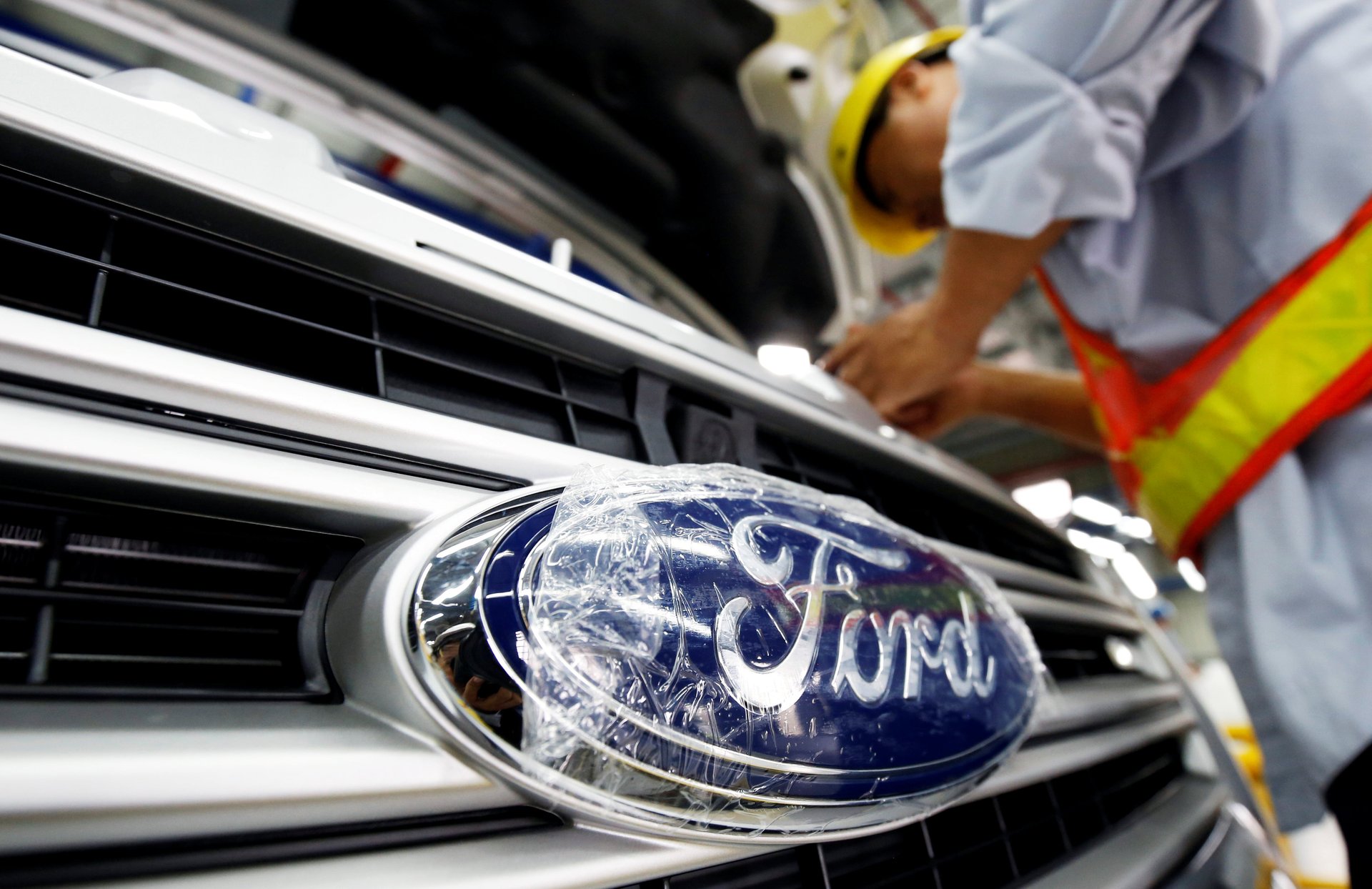Ford’s Chinese partner insists their EV battery deal is going well—but Ford isn’t so sure
Amid an autoworkers' strike, Ford said it is pausing work on its planned Michigan EV battery plant, a partnership with China's CATL

Ford is halting work on its $3.5 billion electric vehicle battery factory in Michigan, The Detroit News reported on Monday (Sept. 25). But Ford’s partner in the project—the Chinese battery giant CATL—insists that the collaboration is ongoing.
Suggested Reading
Ford told media that are “a number of considerations” lie behind its decision to suspend work on the plant. The company declined to specify what those factors are, beyond noting that the suspension will continue until it can be sure the plant can be operated competitively.
Related Content
The US automaker had planned to manufacture EV batteries in a factory that’s 100% owned by Ford, with technology licensed from CATL, in a deal that raised concerns about deepening US reliance on China in a key industry.
CATL’s shares slumped on the Ford news
For CATL, the partnership with Ford was seen as a strategic and potentially highly lucrative move. Under the deal signed in February, CATL would earn licensing and service fees from sharing its technical know-how with Ford.
On Tuesday, news of Ford halting work on the plant sent the Shenzhen-listed CATL’s shares tumbling nearly 2.5% against the Shenzhen index’s decline of about 0.5%.
But CATL insists that its partnership with Ford is forging ahead. In a statement (link in Chinese) to the state-run business outlet STAR Market Daily, CATL dismissed news of Ford’s suspension of the partnership as “fake information,” adding that the two parties are making “smooth progress.”
Nevertheless, Securities Daily, another Chinese state-run outlet, dubbed the Ford battery factory suspension as a “black swan” (link in Chinese)—an unpredictable event with potentially significant consequences.
Ford’s EV battery plant faces multiple challenges
The work stoppage at the Michigan battery plant comes even as the United Auto Workers (UAW) union is striking against the big three US carmakers, including Ford. The simultaneous strikes began on Sept. 15, and expanded last Friday (Sept. 22) to additional General Motors and Stellantis facilities. More than 18,000 auto workers are now on strike to demand pay raises.
To further complicate matters, Ford acknowledged “significant gaps” remaining in its contract talks with UAW, and the union criticized the EV battery plant hiatus as a “shameful, barely veiled threat by Ford to cut jobs.”
Meanwhile, the US House Select Committee on the Chinese Communist Party, is celebrating the hiatus. The committee, set up this year to focus on national security threats posed by Beijing, launched an investigation in July into the Ford-CATL partnership.
“[W]e’re encouraged to see Ford take a crucial first step to reevaluate its deal with Chinese Communist Party-aligned EV battery firm, CATL,” Representative Mike Gallagher, the committee chairman, said in a statement. “Now, Ford needs to call off this deal for good.”
Quartz has asked CATL for comment.
Clarification: This story has been edited to emphasize that the Michigan battery plant is owned by Ford.